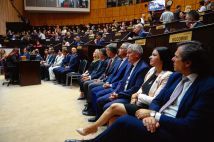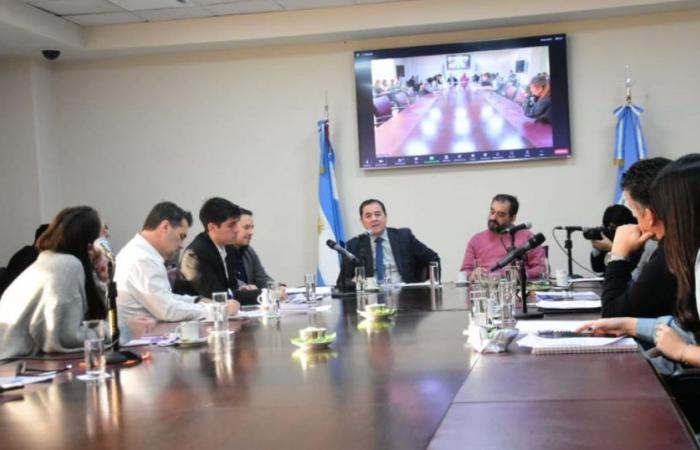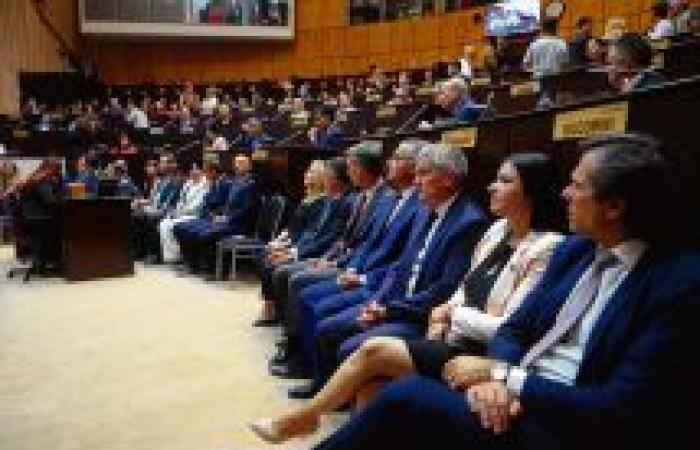The Committee A of the Legislature met Tuesday past and did not address transparency in access to Asset Declarations of public officials. At the previous meeting, it had been agreed to continue working on the issue. The Law No. 5 is the one that obliges officials of the Executive, Legislative and Judicial Branch to present their Patrimonial Declarations, but few comply. From December 14, 2023 to May 29, 2024Only 41 officials did so. The rule guarantees secrecy and attacks transparency parameters given that makes it impossible for citizens know who presented it and what information they declared.
He no public access to Asset Declarations of Neuquén public officials limits other types of rights. This is how he explains it Fabian Bergeroprofessor and researcher at the National University of Comahue (UNCo): “Public access to Information is the guarantee of constitutional rights and international agreements that give a real dimension of our citizen character. By the mere fact of being a human being, we have the right to demand that information be public. The Law No. 5 attacks the possibility of citizens accessing informationto know how officials entered and left office. It is serious because being informed, allows us to make correct decisions in a democratic framework. If we do not have information, we cannot decide and if it is hidden from us, it will be difficult for us to make an appropriate decision.” And he gives an example: “If I see that a candidate became rich overnight through activities that he cannot account for, it is difficult to vote for him.”
In the same vein he thinks Juan Justo, professor of Administrative Law at UNCo: “He Access to public information is precondition for the exercise of other fundamental rights, such as freedom of expression, freedom of the press, the exercise of public debate. Yeah there is no access to informationall those tools too they look weakened”.
“One has to connect the fight against corruption with the exercise of rights. The lack of transparency is undermining other types of rights, of the most varied nature, economic, social and cultural rights and ends up impacting in the right to health, education, etc.”, he adds.
The figure of the people who exercise politics today are beaten. It is common to hear: “they are chaste”, “they strive for everything”. The perpetuity of concealment of asset information of public officials In short, it denigrates the public service. Life the image of the politician “chanta”, “thief”.
“Of course,” Bergero continues, “The effort should be theirs to reverse this image.. They should be the first to say “we have to change this image, that’s why we are going to make public all our assets and those of our family group. Whoever decides to be a civil servant has to submit to transparency regimes, to global standards. With Law No. 5 we are in the Middle Ages”.

The law No. 5 is from 1958. Since that moment it has not been updated. The norm is so old which establishes that the Asset Declarations must be presented in a sealed envelope. “Will sealing wax be available in bookstores?” asks Bergero and continues “the different governments of Neuquén have had a attitude quite refractory to giving information. But They should have an active role In guaranteeing access to information, institutional mechanisms must have mechanisms that allow this to become a reality. It is not enough for them to proclaim it, they have to guarantee it”.
“In recent years both globally and nationally there has been a significant progress in recognizing access to public information as a guiding principle linked to international commitments on human rights, conventions and rulings,” explains Justo, “but, later on praxis there is a very big difference”.
“Neuquen needs more modern legislation regarding access to public information,” continues Justo, “from 1958 to this point there has been an evolution that has occurred at the federal level, international pacts, rulings, the provincial constitutional reform itself of 2006 with enormous changes and the Law No. 5 became outdated.”
“This rule is causing harm to citizens”, Bergero closes, “at deprive us of information that would allow us to make informed decisions, it is taking away our decision-making power”.
The Legislature has the power to address the issue.
Commission A met last Tuesday and did not address the bill presented by Brenda Buchiniz from the Cumplir – La Libertad Avanza bloc. In the previous meeting, The president of the commission, Ernesto Novoa (Community), had promised to continue working on the issue.
“I facilitated the presidency of the Commission the telephone number Federico Egea and María Angélica Acosta Meza – lawyers who made a request for public access in which the limited list of officials who fulfilled their duty was known – and of the National Director of the System of Affidavits, Emiliana Giaccone so that I can call them and they can add their contributions to the debate, but they told me that they couldn’t communicate”said Buchiniz.
“I hope that we can continue having this debateabove all because the proposals that were heard – by deputies – at the last meeting They are very wrong”says Buchiniz. And he lists: “a representative assured that she does not want her address to be public, for that I sent them by internal mail the Affidavits that are presented in the Nation so that they know that neither the address nor sensitive data are published. And others said that year after year they present their Affidavits before the AFIP, this information is not public, it is not free access. One has to make information transparent to society.”










